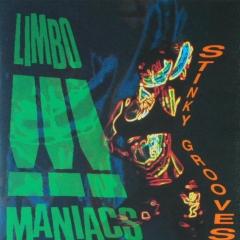

On the terrific “Cruel Summer,” written with Antonoff and Annie Clark (a.k.a. (Think recent Carly Rae Jepsen, if she made actual hits.) Swift loads “Paper Rings” up with a “1-2-3-4,” a “hey! ho!” and a key change for a jittery bit of Cars-meets-Eddie Money-meets-Go-Go’s delight. In a bonus making-of track destined for a Target edition of the album, Swift tells Antonoff she wants a “dreamy guitar-y throwback, but not camp throwback” sound for the title track, and that’s pretty much the vibe. Made mainly in collaboration with Jack Antonoff, female songwriting ally nonpareil, the album’s dominant sound is sleekly updated Eighties pop-rock.
Cover album stinky free#
But nevertheless it feels like an epiphany: free and unhurried, governed by no one concept or outlook, it represents Swift at her most liberated, enjoying a bit of the freedom she won for her cohort. Lover is, fittingly, evolutionary rather than revolutionary. If Ariana, Billie, Halsey and others seem so effortlessly themselves, it’s in part because Swift worked so hard at speaking her truth and smiting her enemies. Grande might’ve picked up something here, too, with her triumphant embrace of hip-hop-style surprise drops. When Swift went pop, that wasn’t so much a transformation as an annexation of new territory. In sharing her actual feelings about relationships chronicled by the tabloids - and parrying the entire internet’s judgements of those feelings - Swift helped open up a space for Ariana Grande to directly address Sean, Pete, and Malcolm on “Thank U, Next” (to name one glorious example). Female pop stars since Madonna have been expected to constantly reinvent themselves, lest it seem like they’re aging - an impossible standard that vexed Swift contemporaries like Lady Gaga and Katy Perry. And just as obviously, that vulnerability has been her strength. Swift has always been vulnerable, of course. For two and a half minutes, Swift regresses past all the drama and heartache she’s cataloged since her teen years to curl up in a weird little pocket of beauty.īlack Sabbath on the Making of 'Vol. It’s like the end of 2001: A Space Odyssey, where a long turbulent journey through outer (and, naturally, inner) space culminates in the sudden appearance of a planet-sized fetus. There is, instead, deconstructed steel drum, horn and cooing voices - Animal Collective as interpreted by hip-hop-savvy pop-producers-of-the-moment Louis Bell and Frank Dukes, the song’s co-writers. It’s about being six or seven, and walking home from school in the snow: “Lost my gloves / You give me one / Wanna hang out? / Sounds like fun.” There’s no beat, no banjo, no metaphors or coded messages. ( Lover actually contains 18.) More importantly, it’s not about being 16 or 22 or even her not-insignificant current age, 29. For one thing, it’s the 17th song here, and none of her previous albums have run more than 16 tracks. By the time “It’s Nice to Have a Friend” arrives on Lover, her seventh and most epic album, Taylor Swift has entered uncharted territory.


 0 kommentar(er)
0 kommentar(er)
